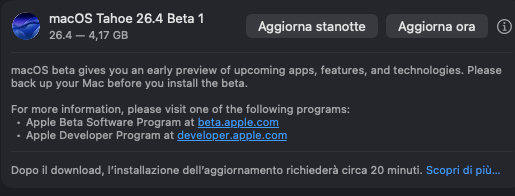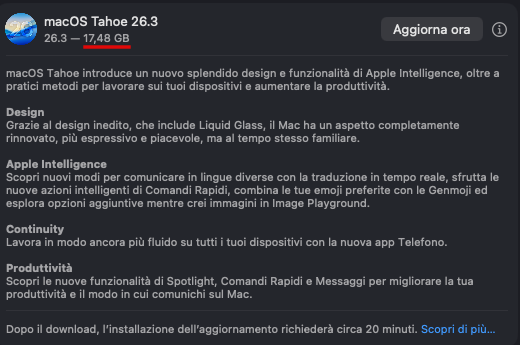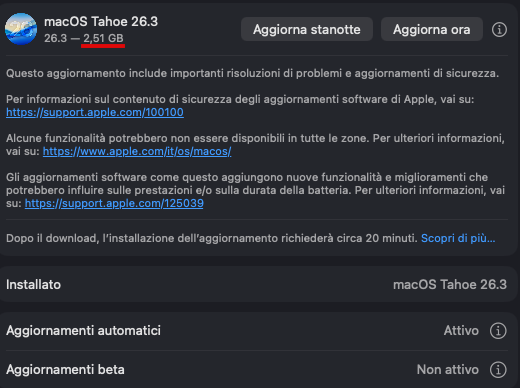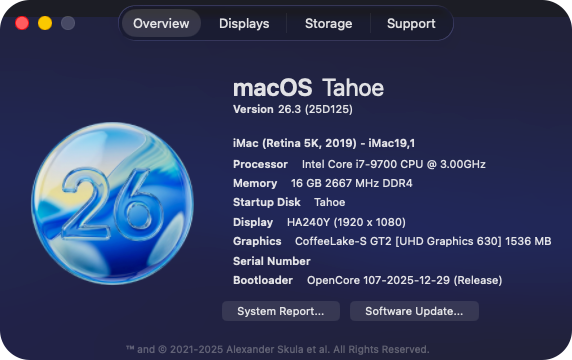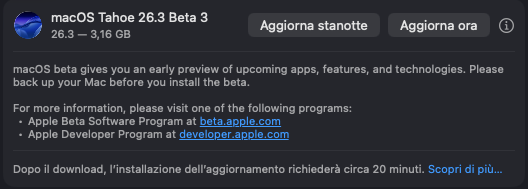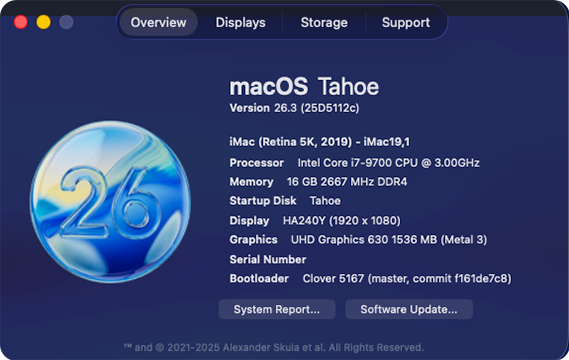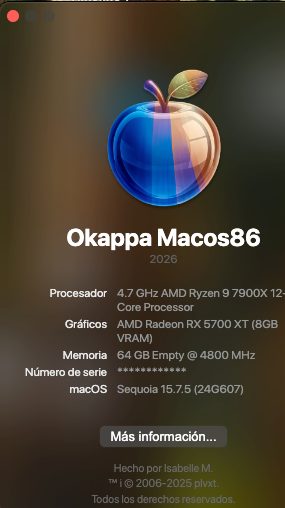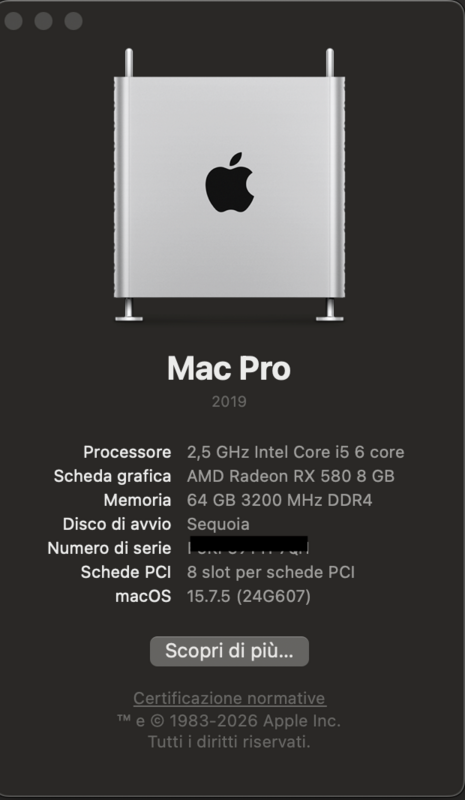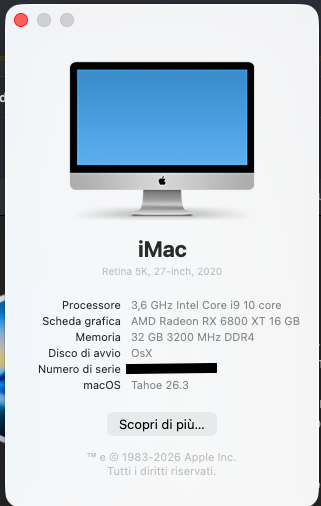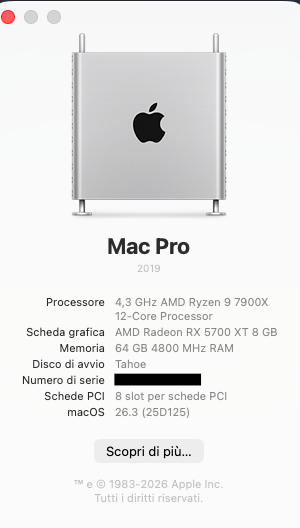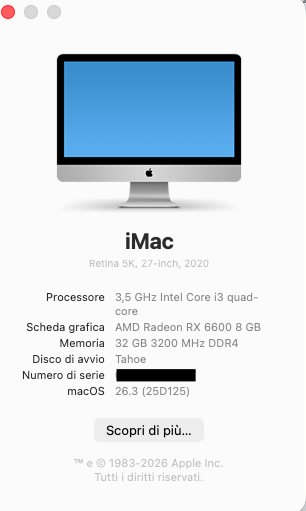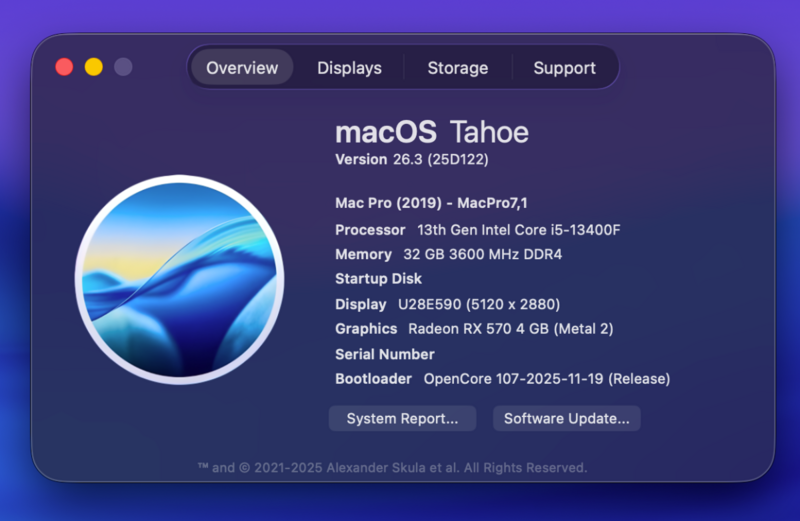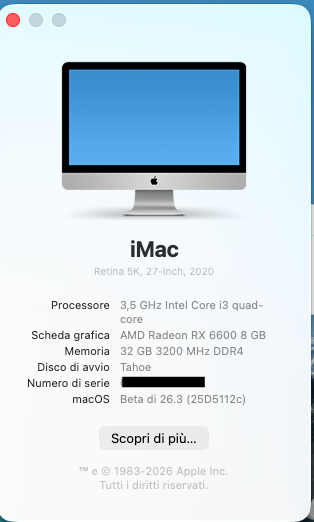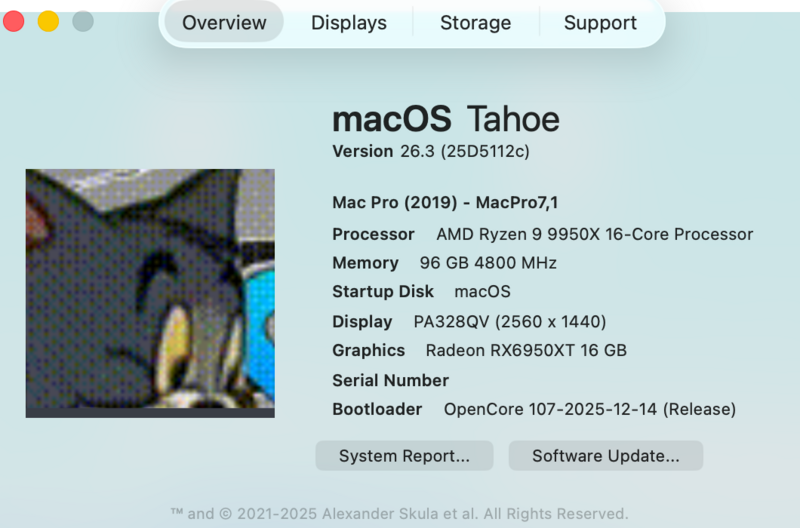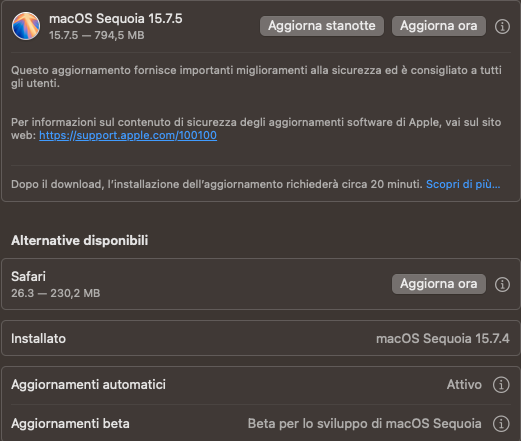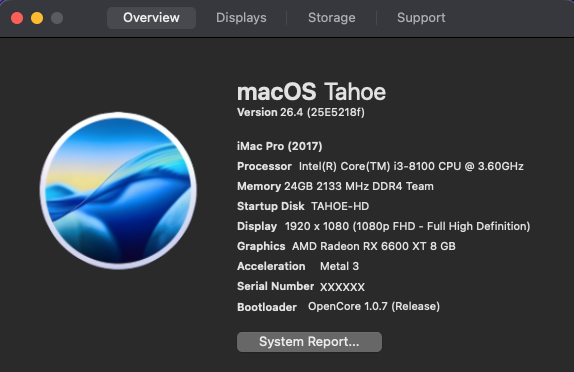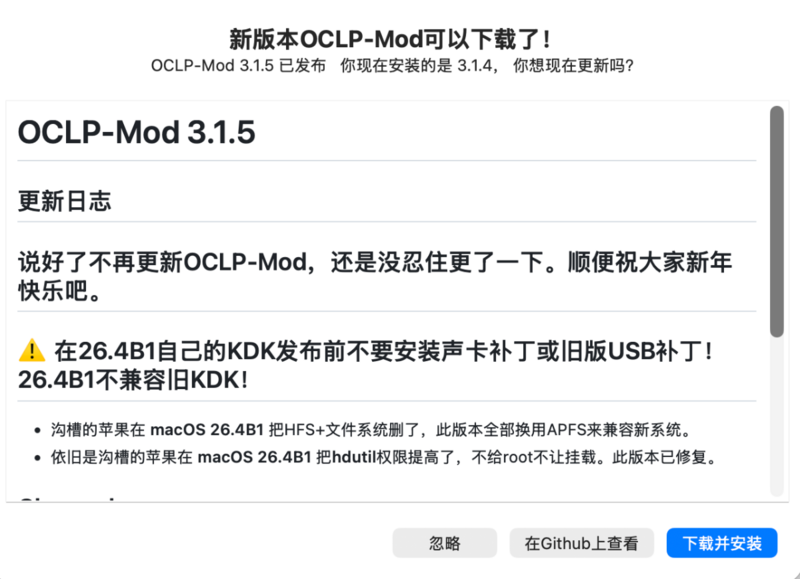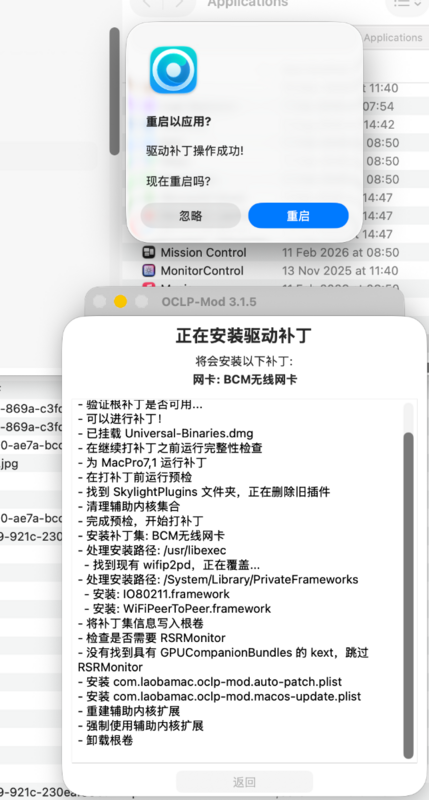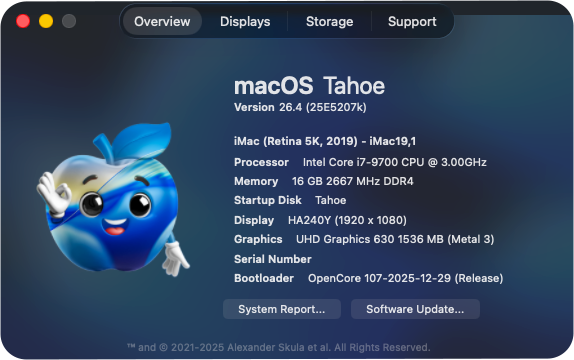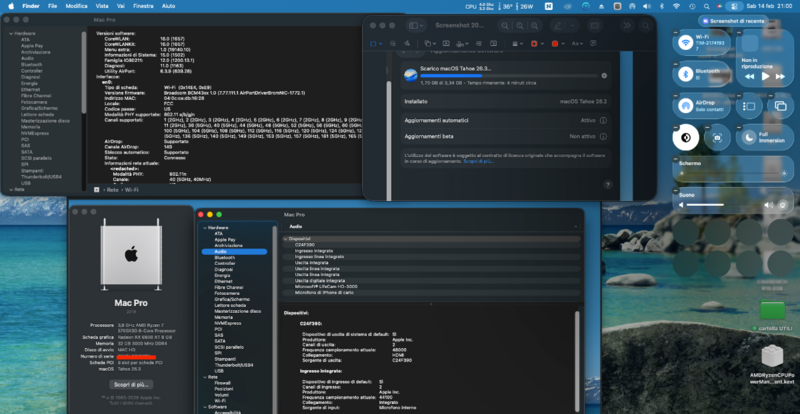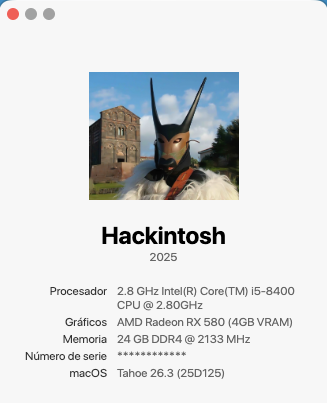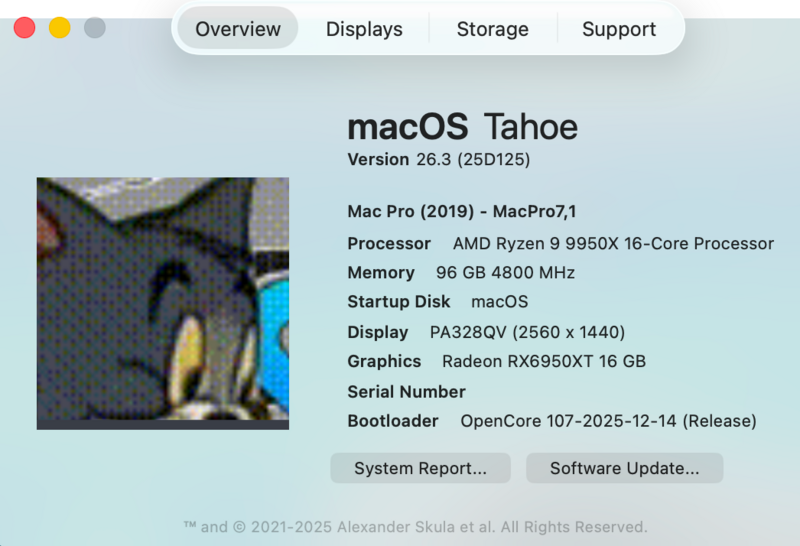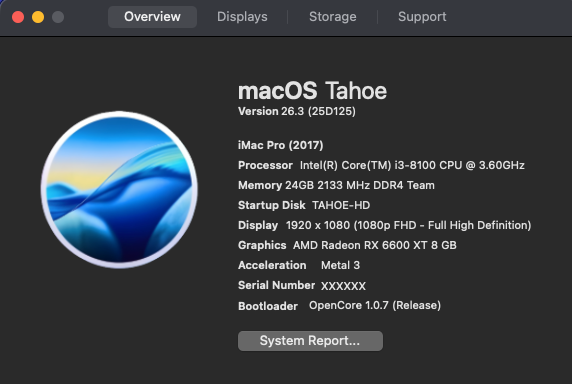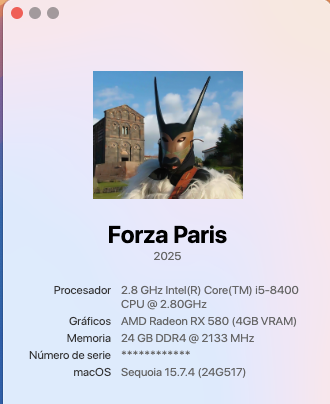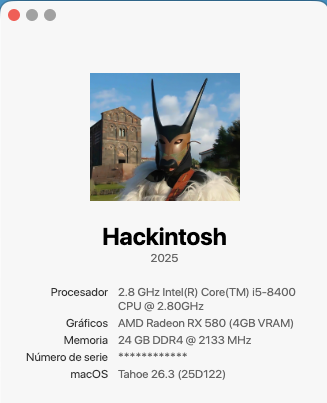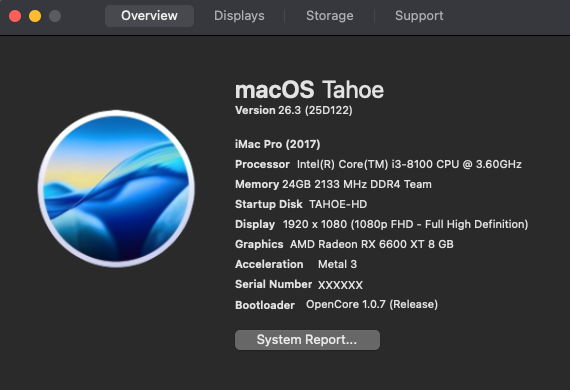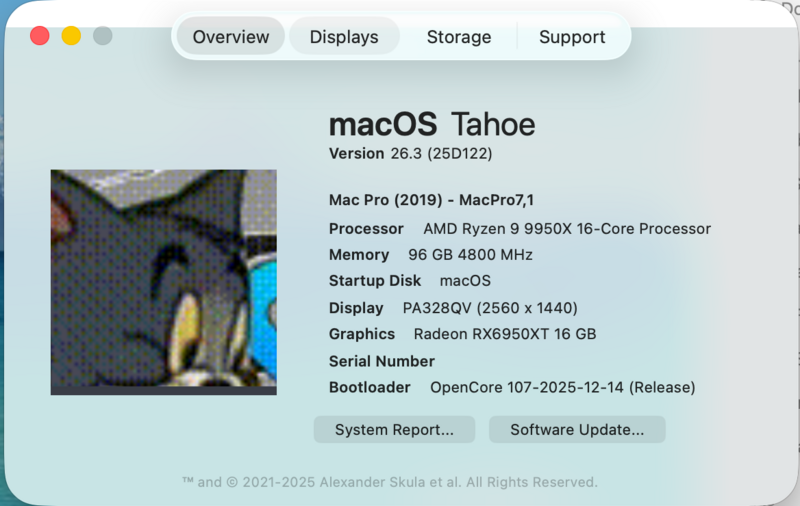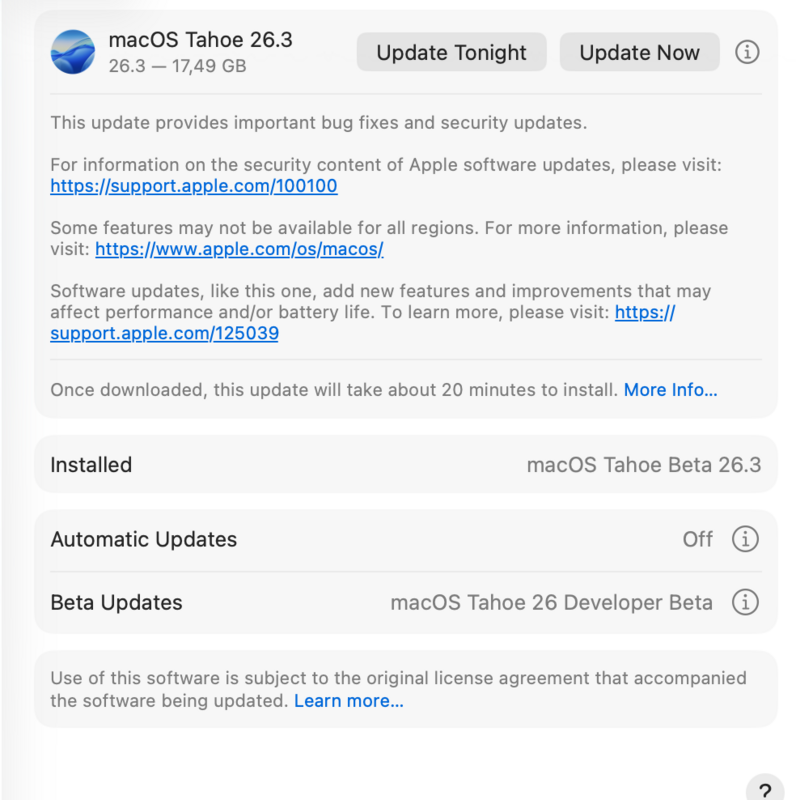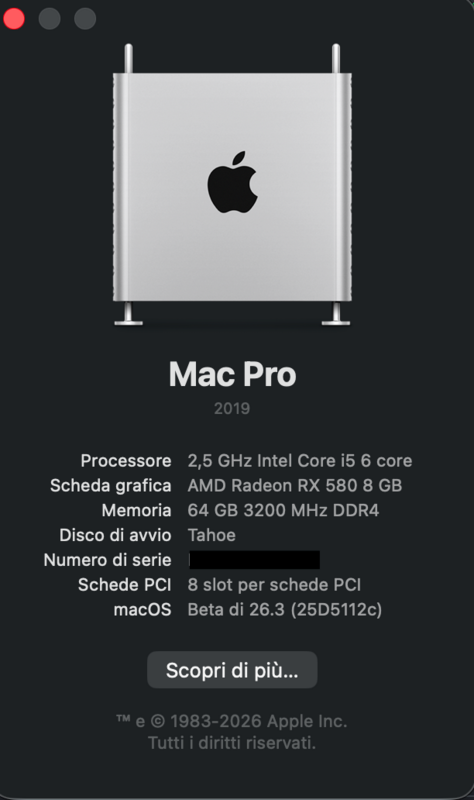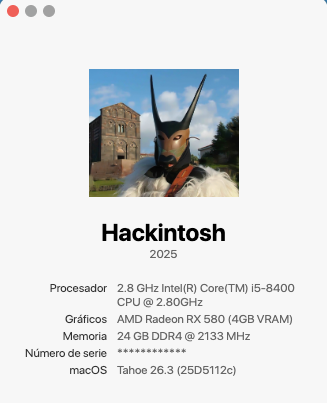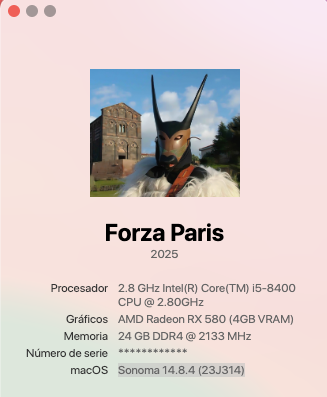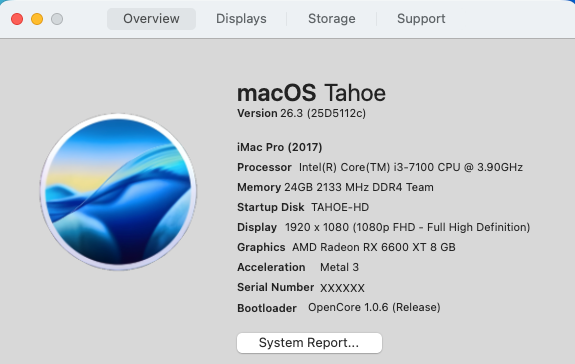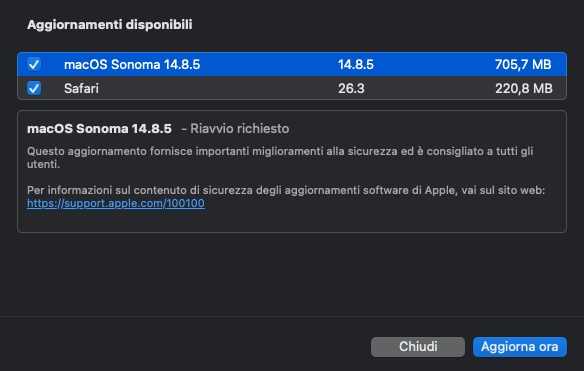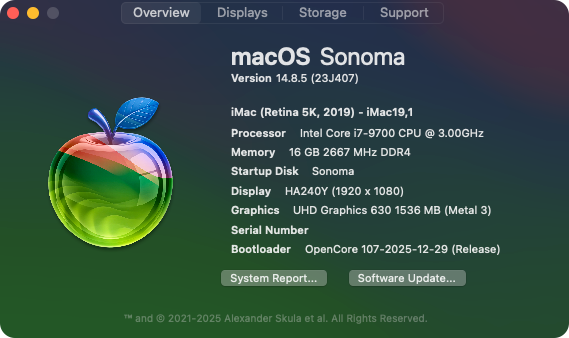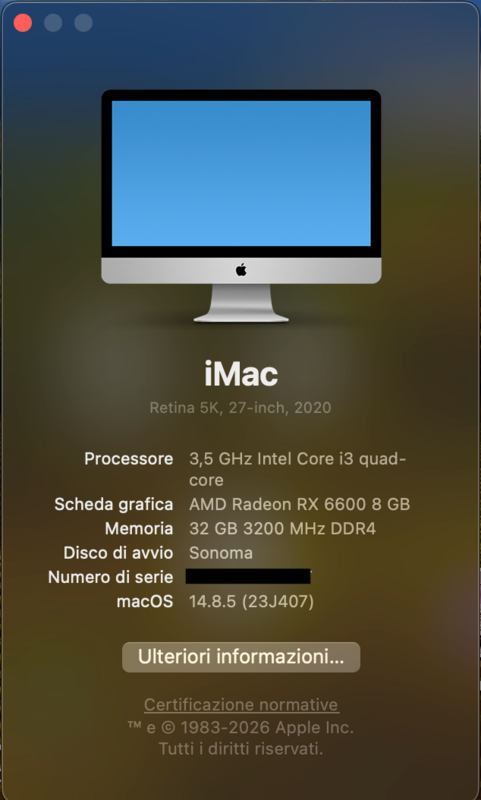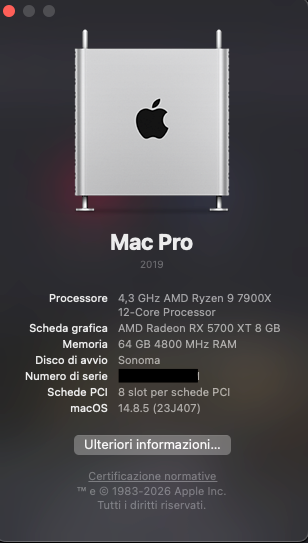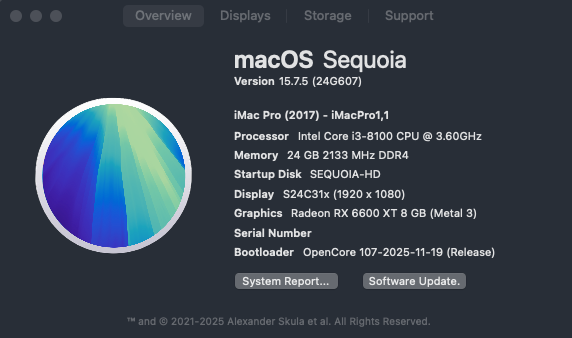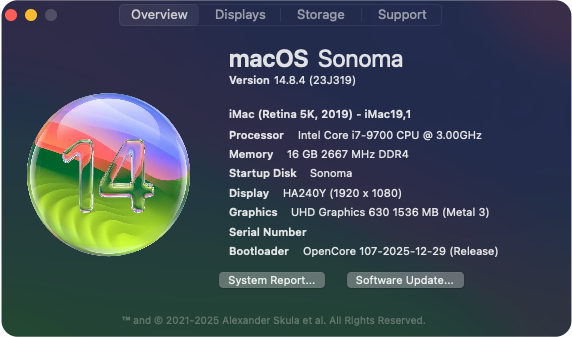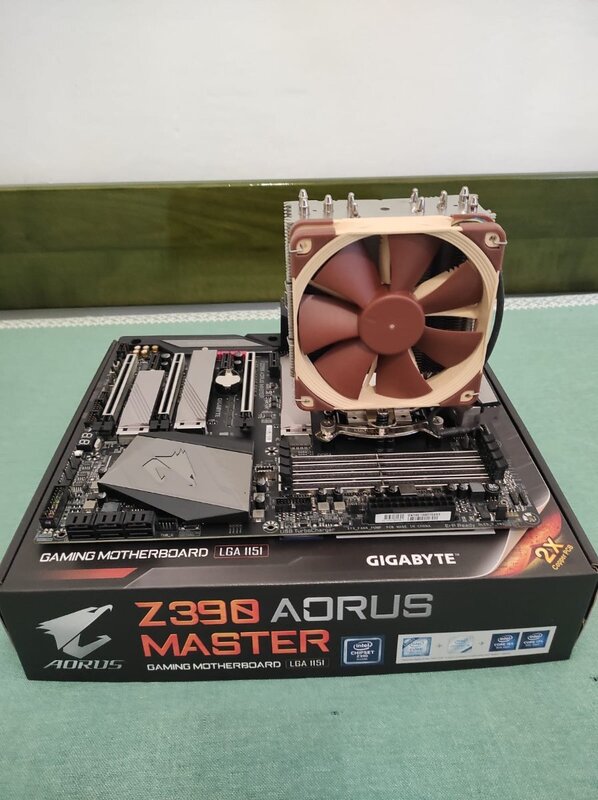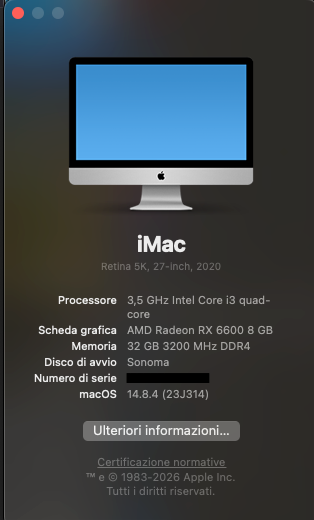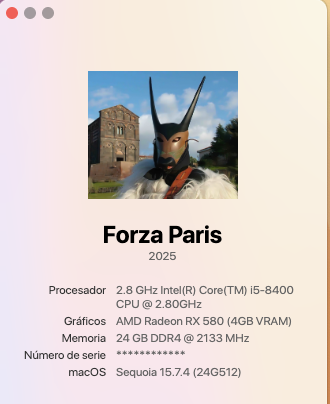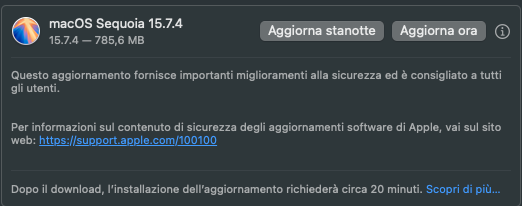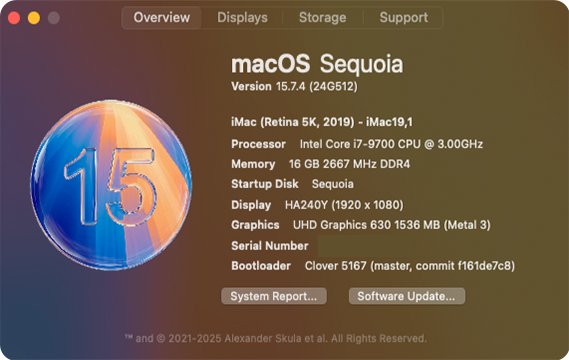Leaderboard
Popular Content
Showing content with the highest reputation since 01/24/2026 in Posts
-
5 points
-
5 points
-
5 points
-
4 points
-
4 points
-
4 points
-
4 points
-
4 points
-
4 points
-
3 points
-
3 points
-
3 points
-
3 points
-
3 points
-
3 points
-
3 points
-
3 points
-
3 points
-
3 points
-
3 points
-
3 points
-
3 points
-
3 points
-
3 points
-
3 points
-
3 points
-
3 points
-
3 points
-
Impostazioni -> Accessibilita' -> Schermo -> Puntatore = Reimposta colori ... sembra risolvere , al riavvio pero' si ripresenta 🙃3 points
-
3 points
-
2 points
-
2 points
-
2 points
-
2 points
-
Ciao giovanotti/e per problemi di OCLP continuiamo qui grazie2 points
-
Tahoe 26.4 Beta 1 (25E5207k) Full Installer https://swcdn.apple.com/content/downloads/06/63/047-01208-A_J3XEK7LLH9/sr0z5l26rpsvur2gim4d5z1ry8kmd4r2cc/InstallAssistant.pkg2 points
-
2 points
-
Supporto Ufficiale: Il sito Apple Support non include il Macmini8,1 nella lista dei dispositivi supportati per macOS Tahoe (presentato a giugno 2025).2 points
-
2 points
-
2 points
-
Full Installer https://swcdn.apple.com/content/downloads/15/23/047-60297-A_CC7WE2S6AE/h1lvp87655fnwe4zityuew187qsnj7dzcd/InstallAssistant.pkg2 points
-
2 points
-
2 points
-
2 points
-
Se il problema si presenta a tutti mi pare strano che abbiano rilasciato una versione di aggiornamento senza correggere l'errore... Non ho ancora aggiornato, vedremo se ho lo stesso problema2 points
-
Tahoe 26.3 Beta 3 (25D5112c) Full Installer https://swcdn.apple.com/content/downloads/60/04/047-27581-A_YGXBI9HYTN/i2gb99hwuo7xvfykmlztl58uc2ce7bven6/InstallAssistant.pkg2 points
-
2 points
-
2 points
-
2 points
-
2 points





